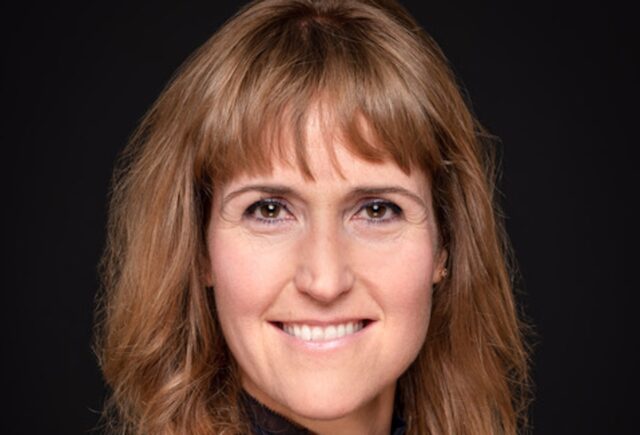The Shell Foundation and investment manager Nuveen have joined forces to boost private equity investments in startups focused on providing solutions for tackling climate change in developing countries

In brief
- Nuveen and Shell Foundation seek to boost private equity flow to nascent firms in Africa and south Asia
- Partnership will initially target distributed renewable energy sector
- Early focus on information sharing with investments to follow
The Shell Foundation (SF) and investment manager Nuveen have created a partnership to bring together the strengths of the charitable and private equity sides of impact investing.
The aim is to help scale up enterprises focused on mitigating the effects of climate change and building climate resilience in the developing world.
The partnership will primarily focus on companies in the distributed renewable energy (DRE) sector in Africa and south Asia.
This sector has traditionally been nurtured through grants and development finance and should benefit from the injection of private equity investment – the lack of such equity funding often proved a major barrier to growth in the past.
The two institutions say they believe it is the first time such a partnership between a charitable foundation and private equity has been agreed.
As part of its global impact private equity strategy, Nuveen expects to invest at least $100m over the next five years in enterprises in DRE and those taking other forms of climate change mitigation measures.
De-risking markets
The sector ranges from the provision of solar pumps to smallholder farmers for irrigation, to developing solar-powered mini grids to supply power to off-grid rural areas.
Shell Foundation says that while it is financially supported by oil and gas major Shell, it maintains independence in decision-making and day-to-day operations.
The foundation has provided funding over two decades to support agri-renewables, agri-finance, energy for business, mini-grid renewables, mobility and off-grid utilities, crossing paths with Nuveen over the years, leading to ad hoc cooperation. The partnership agreement puts this relationship on a more formal footing.

Nuveen believes it will benefit from the Shell Foundation’s experience in nurturing startups and its on-the-ground presence in the south Asian and sub-Saharan African regions.
“Shell Foundation has flexible capital that can de-risk markets and build a business case, while we have capital that can really help a company get to scale and grow,” says Pete Murphy, head of ESG and impact for Nuveen Global Impact.
The foundation supports a portfolio of more than 80 social enterprises and institutions at differing growth stages, from startup to those around Series B funding level.
Examples of successful SF’s partners include SunCulture, a solar pump company providing irrigation and household water in Africa, and InspiraFarms which provides energy efficient, refrigerated storage in Africa and Latin America.
Another SF-backed success story is Ampersand, a Rwandan firm which builds affordable electric two wheelers and manages the energy network that powers them.
Nuveen made what it calls its first impact investment in the 1980s and has since invested approximately $600m in direct and indirect private equity capital in over 200 portfolio companies, in alignment with the UN Sustainable Development Goals (SDGs).
Its activities run from around Series B level funding upwards, making it a good fit for some of the SF portfolio, but the partnership will also be looking for fresh ventures in which to invest. The first fruits of the tie-up are expected to be announced later this year.
Catalysing impact investment
Murphy says the main focus of the partnership in its early stages would be information sharing.

Nuveen would benefit from SF’s knowledge of the sector, giving the investment manager an “under-the-hood” look at target companies and sectors faster and in more depth than if it was reliant on information from the company itself or its banks.
The foundation, meanwhile, stands to gain from Nuveen’s insights into what scaled private equity investors look for in a company.
“That’s the type of feedback that can be a struggle for Shell Foundation to access sometimes, because there’s just not that much activity in emerging markets around these types of companies from the institutional private equity space,” Murphy says .
A spur for the collaboration was research carried out by the Shell Foundation in the run up to the COP26 climate change meeting in Glasgow, which identified a $200bn investment opportunity in providing off-grid energy solutions in sub-Saharan Africa, which would avoid 626 million tonnes of CO2 equivalent by 2030.
“We spoke to more than 30 fund managers to look at the issues, and we realised that Nuveen were well ahead of some of their peers in their thinking on what impact investing means,” Ashish Kumar, climate and innovation lead at Shell Foundation, tells Impact Investor.
“One of the reasons we like each other is that we both move quickly when it comes to deal-making and investment in the sector. We are very agile early stages impact funders,” he says.
A meeting of minds, similar ambitions in the DRE sector and complimentary skillsets led to the decision to collaborate more closely.
“Nuveen wanted to do more impact focus themes in the sectors that we have been operating in for the last two decades. We have deep market intelligence of those sectors, in our own portfolio of companies and beyond – we can say to them, okay this what the sector should be doing,” Kumar adds. “If we find deals that maybe relevant to them, we may also put in our own capital in some cases.”





